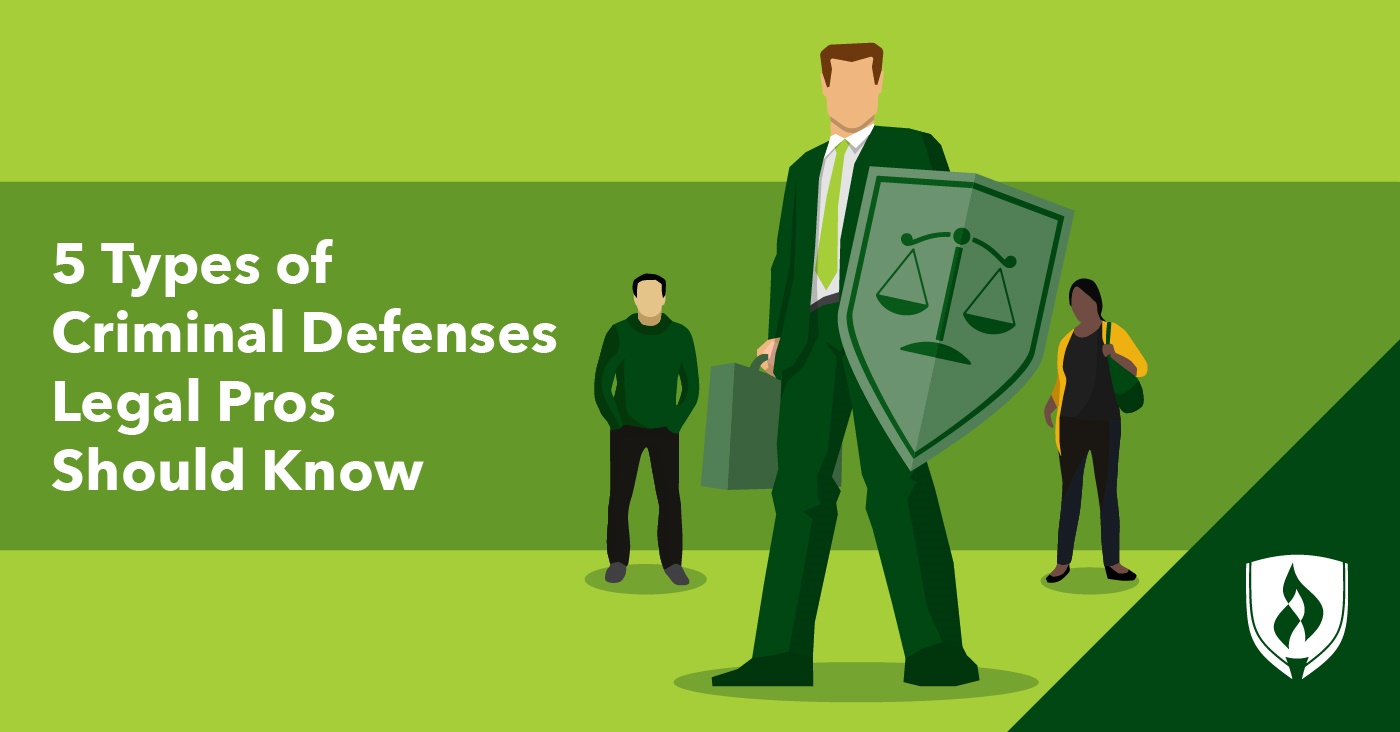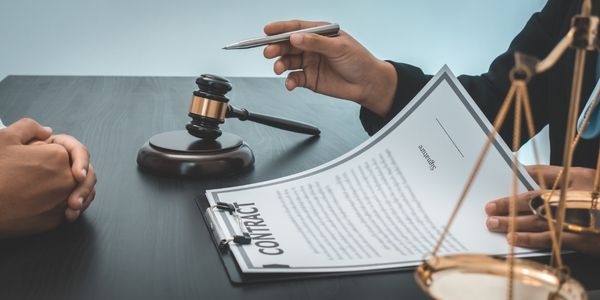If you’re a fan of crime shows, you know that there’s no shortage of strategies for television lawyers to keep their clients from jail or prison time. While some of the approaches portrayed in these legal dramas are embellished for the sake of entertainment, most are grounded in a factual basis.

Binge-watching the legal maneuverings of Jack McCoy’s defense attorney foils on “Law & Order” is a nice way to pick up on some of the defense strategies used in criminal cases, but it’s no substitute for hearing about the real thing from legal professionals.
If you’ve ever wondered how real criminal defenses are built for people who get in trouble with the law, you’re in the right place. We talked to several attorneys to get a sense of how they build a case to protect their clients from jail time, financial penalties and criminal records.
What is a criminal defense?
A criminal defense is essentially the actions taken by the accused (or most likely the accused’s attorney) before, during and after a trial to obtain the best possible outcome. This can include witness interviews and cross-examinations, procedural efforts to challenge which evidence is admissible, plea negotiations and more.
One factor to note about criminal defenses in the United States is that the burden of proof is on the prosecuting attorneys, not the defendant.
“The defense never has to prove innocence in American courts,” says Matthew Carter, an attorney at Inc and Go. “The prosecution has to prove guilt beyond a reasonable doubt. Therefore, defense attorneys will always focus first on making the prosecution prove everything.”
Often, the facts and circumstances of a case may seem to indicate the accused is guilty, but even a small crack in a case can have a dramatic effect on the outcome. This high standard can sometimes result in frustrations for a casual observer. After all, it’s hard to see someone who likely committed a crime get away with it, but the standard helps to shield all of us from unjust prosecution.
Dustyn Coontz, an attorney at Coontz Law, says there are many factors that can work to a defendant’s advantage.
“I see three pillars to every case: legal, factual and social,” Coontz says. “With the legal pillar, I’m looking for a defense that can get my client off the hook. These typically arise when the police violate my client’s constitutional rights, but other legal defenses could include insanity or self-defense. With the factual pillar, I’m looking at things like alibis, timelines, reliability of eyewitnesses and other things that will point to my client’s innocence. With the social pillar, I’ll use my client’s positive qualities—in conjunction with any potential legal or factual deficiencies to the prosecutor’s case—to try to leverage a good plea deal or sentence.”
For more ways defense attorneys handle criminal defenses, read on!
5 Commonly used criminal defense strategies and tactics
1. Dismissal of charges
One clear priority for defense attorneys is to seek an outright dismissal of charges. While the benefit to their client is obvious, this work is often easier said than done.
“When it comes to proving innocence or getting charges dismissed, it is all about dismantling the charges against the client,” says Ty Gibson, an attorney and founding partner at Gibson Hill Personal Injury. “Piecing together evidence that showcases the innocence, or the specific circumstances and actions, in order to prove that the charges are invalid or too harsh.”
This approach is a good way to cut off any further work that might be needed, as it prevents further expenses and efforts on the part of the attorney, especially if a trial can be avoided.
2. First-time offense leniency
Another strategy defense attorneys will turn to is to highlight how the incident was a one-time error and not a pattern of criminal behavior.
“Oftentimes if there are no prior incidents, a court will outright dismiss a charge or use it as a mitigating factor during sentencing,” says David Reischer, an attorney and CEO at LegalAdvice. “Repeat offenses can have significant consequences including potential jail time and not having any prior convictions can lead to significant leniency by the court.”
Context will matter heavily here, of course. For instance, “It was only my first premeditated murder” likely isn’t going to gain much traction, but an otherwise upstanding person facing a lower-level criminal charge for damaging property may receive some leniency.
- Motions to exclude evidence
Finding ways to invalidate evidence or remove it from the case entirely is another method defense attorneys often use to counter a prosecution.
“The best way to beat a criminal charge is to beat the evidence or show the lack thereof,” says Amy Lawrence, attorney at The Lovely Law Firm®. “When we take a case in South Carolina, the first thing we do is file a motion to get the evidence under Brady v. Maryland and Rule 5 of our South Carolina rules of criminal procedure. This motion forces the state to provide all evidence to us. If they fail to turn over evidence, that can lead to a whole list of problems for the prosecution.”
Lawrence adds that once in possession of the evidence, she and her team would look over everything for administrative irregularities or procedural missteps on the part of law enforcement. For example, in the state she practices in, Lawrence says there are very specific laws that must be followed in a driving under the influence arrest.
“We go through every roadside car cam video, the disaster room video and the officer’s final report,” Lawrence says. “We then compare that to the rules and regulations of what was supposed to be done.”
Much like dismissal of charges, motions to exclude evidence can put a halt to all legal proceedings, which saves time, effort and money for all involved.
4. Good intent, poor mental state or insanity defenses
An attorney may argue a defendant performed what would otherwise be a criminal act in a case of self-defense. For example, if a person assaults someone who is trying to harm or rob them, the intention of the defendant could be viewed as not malicious—though the context will matter greatly.
Similarly, a defendant being deemed mentally unfit or insane can also be used as a reason they are not guilty of criminal behavior.
“Insanity or poor mental health is a common approach criminal defense attorneys use to prove their client’s innocence and minimize the punishment,” says Clay Hasbrook, an attorney at Hasbrook & Hasbrook. In legal terms, an insanity defense only applies if the defendant has a mental defect or issue that makes it impossible for them to understand their actions or that their actions were wrong.
Hasbrook cautions that insanity defenses aren’t that easy to argue, as you must provide medical evidence to support your claim—and there are still consequences that come with this approach.
“It also doesn’t mean that your client can simply walk around freely,” Hasbrook says. “They’d be put in a rehabilitation center and undergo treatment.”
5. Plea bargains
Often, the facts and circumstances of a case require defense attorneys to focus their efforts on minimizing penalties. One way to do this is through the use of plea bargaining.
“If the charges against you cannot be dismissed or dropped, the attorney can get them reduced through a plea deal,” says Mark Sadaka, attorney and founder of Sadaka Associates LLC. “This deal will allow the prosecution to have a guaranteed plea, resulting in a reduced charge and lesser sentence.”
Sadaka says that plea deals are best done in situations where the prosecution has a weak case and the client’s best recourse is to plead guilty to a reduced charge. This becomes a mutually beneficial scenario—the defendant may receive a lighter punishment while the prosecution doesn’t run the risk of failing to secure a conviction.
Could you be on the case in the future?
Working in the legal system requires an analytical mind that is also nimble and creative when it comes to interpreting laws and protecting the best interests of individuals and the public. Think you might have what it takes to work in the legal field? Becoming a lawyer isn’t the only option; there are many routes to working for justice. To learn more about the differences between paralegals and attorneys, check out our article “Paralegal vs. Lawyer: The Guide to Help You Decide.”The Lovely Law Firm is a registered trademark of Justin Michael Lovely.




